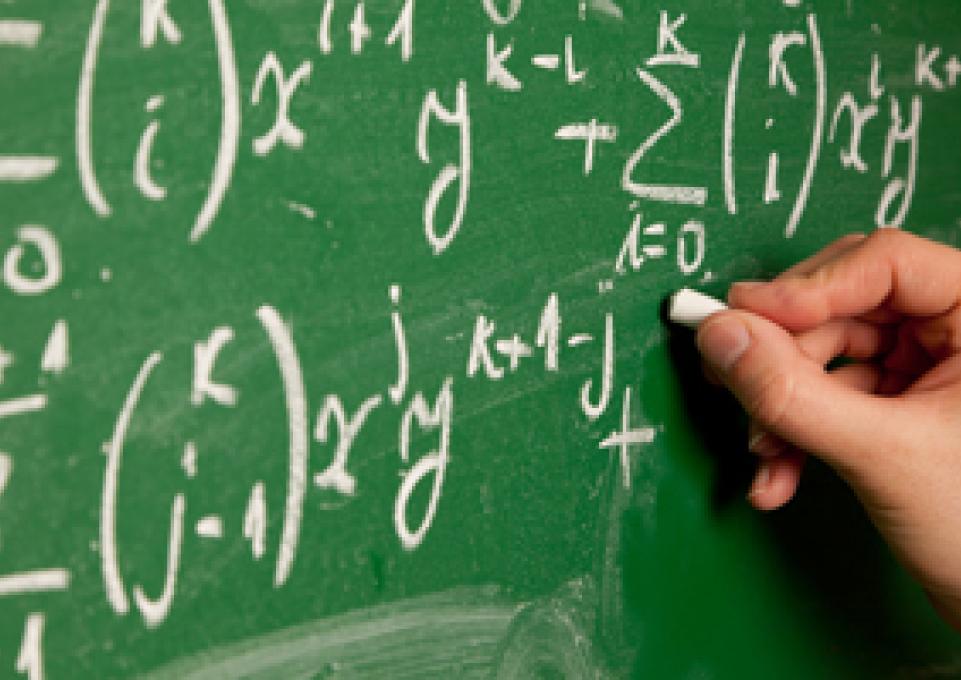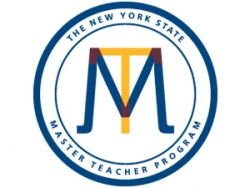
Master teachers are, first and foremost, lifelong learners themselves. That characteristic was among the criteria used when selecting the 29 Western New York teachers who received a master teacher fellowship through the New York State Master Teachers Program.
 Buffalo State was selected to be one of the four SUNY institutions to host the program in May 2013. The first Western New York cohort begins the program on Tuesday, October 29. A reception in the atrium of the campus’s new Science and Mathematics Complex at 5:00 p.m. will honor the participants, who were chosen from among 120 applicants.
Buffalo State was selected to be one of the four SUNY institutions to host the program in May 2013. The first Western New York cohort begins the program on Tuesday, October 29. A reception in the atrium of the campus’s new Science and Mathematics Complex at 5:00 p.m. will honor the participants, who were chosen from among 120 applicants.
The reception site is appropriate because the Master Teacher program is open only to teachers with at least four years of experience teaching STEM disciplines, and whose course load includes at least 60 percent of STEM (science, technology, engineering, and math) subjects.
“Buffalo State was selected to host our region’s program because of its long tradition of providing a high-quality teacher education program,” said David Henry, associate professor of elementary education and reading. He is directing the program with David Wilson, associate professor of mathematics. Both are former high-school teachers—Henry taught physics; Wilson taught math. Their classroom experience informs their shared research interest in finding ways to support current master teachers while helping early-career and pre-service teachers excel at teaching.
“Teaching can be a lonely profession,” said Wilson. “It’s true that you’re always with your students, and there are many teachers in a school building, but there are few opportunities to communicate and share ideas with others who are teaching the same subject you are and facing the same challenges.”
Math for America (MfA), a nonprofit founded to “improve mathematics and science education in US public secondary schools,” developed the Master Teacher Program that serves as the model for the New York State program.
“Media coverage of teachers and education often fails to illuminate the many wonderful things that happen every day in our schools,” said Henry. “The Master Teachers program gives us a way to recognize great teachers, provide them with resources for professional development, and help them share their expertise.” Fellows accepted into the program receive a stipend of $60,000 over a four-year period. The stipend supports their participation in Master Teacher programming in addition to regular professional development.
Interested teachers submitted their applications to SUNY, which forwarded the names of qualified applicants to the respective regional campuses. Each Western New York applicant spent a day with Buffalo State’s interviewing teams. The teams assessed the applicant’s demonstrable interest in continuing professional development; subject-matter mastery; pedagogical skills; knowledge of students; and willingness to contribute to a community.
It’s important that the fellows establish a professional learning community, according to Henry and Wilson. That community will provide teachers with ways to explore research and practice in their fields. It will also support the level of engagement necessary to sustain master teachers in lifelong growth as teachers and learners.
Five new SUNY institutions have been identified, bringing a total of ten Master Teacher programs to New York, including the New York City/Math for America partnership. Each region has funding for 70 teachers. Applicants for the second round of fellowships will be accepted beginning November 1.
Wendy Paterson, dean of the School of Education, and Mark Severson, dean of the School of Natural and Social Sciences, are leading the program. They look forward to welcoming the first group of master teachers into the program at the reception on October 29.
“We were already excited to be honoring teachers by celebrating the Year of the Teacher,” said Paterson. “It’s so fitting that we are hosting the Western New York cohort of master-teacher fellows. My fervent hope for this program is that instead of evaluating teachers for what they do or do not know, this program seeks to locate excellence and nurture it to even greater levels of achievement. Such programs are extremely rare. We are so very happy to take part in generating such creative and productive teaching energy!"
